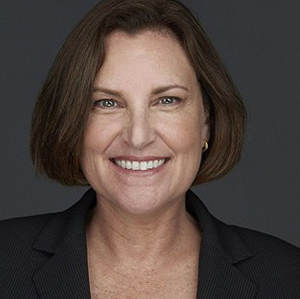Scale matters. Local commitment is paramount. Deep collaborations drive impact.
That’s my short-hand takeaway from this month’s Spotlight Cadre of LISC small business stories, all offering a nod to celebrate Hispanic Heritage Month and the tens of thousands of entrepreneurs that contribute to the vibrant diversity of the American landscape.
Scale matters. Local commitment is paramount. Deep collaborations drive impact.
That’s my short-hand takeaway from this month’s spotlightscadre of LISC small business stories, all offering a nod to celebrate Hispanic Heritage Month and the tens of thousands of entrepreneurs that contribute to the vibrant diversity of the American landscape.
Each story, on its own, speaks to a strong sense of culture and community. But, in looking at them together, it’s easy to see how they reflect LISC’s overarching work to bridge gaps in health, wealth and opportunity and to fuel sustainable growth.
In Philadelphia, for instance, our decades of work with HACE—the Hispanic Association of Contractors and Enterprises—expanded yet again with a recent LISC lineletter of credit, which helped the organization bridge revenue from services contracts that had been slowed during the pandemic. It meant HACE could continue to provide vital local housing services to struggling families at the height of COVID-19 and supportprotect its ability to support a wide range of other programs and services.
I think it’s fair to say that HACE has been an essential resource in Eastern North Philadelphia’s Hispanic community, stanching disinvestment and driving new development, without displacing long-time residents and businesses. LISC is proud to have such a long and committed and diverse partnership with its team.
Heading to Chicago, we are also featuring two businesses this month that are just blocks apart. They not only honor the rich heritage of the immigrant experience in the city, but also illustrate the value of comprehensive investment strategies and the critical role of local nonprofits in seeding and supporting entrepreneurs. When community plans connect good housing, businesses, jobs, health, schools and safety, the ripple effect is substantial. Block by block, local organizations and entrepreneurs can have a remarkable impact on the outlook for their communities.
I’m also struck, in particular, by the fact that these Chicago small business owners are at vastly different points in their careers, but still share many of the same strategies and challenges. Both businesses have deepened their owners’ roots in a dynamic Latino community; both moved from spaces and businesses owned by others to build their own assets for long-term stability; and both needed flexible, affordable financing that was not otherwise available—a fact that is echoed by minority-led entrepreneurs across the country. And aligns so clearly with LISC’s 10X mission, to eliminate the wealth gap of our BIPOC community members by providing resources that focus on building assets to improve generational wealth.
(You can find more Hispanic Heritage stories on LISC’s national web site, as well as many of our local program sites—from a look at a unique Latinas Welding Guild in Indianapolis to a reflection on self-help housing from a rural LISC staffer in California.)
Lastly, I would offer just a word about what these investments say about LISC’s overall small business portfolio. So often, the promise of communities is framed in terms of local poverty rates or racial profiles or historical conditions. The truth is that communities where residents tend to earn low- and moderate-incomes are, in fact, good places to invest and do business. So, too, are minority-led businesses, nonprofits and initiatives that operate in those communities, even if places have been long marked by crime and disinvestment.
We see it every day. LISC’s 40+ years of experience proves that community development finance is both financially sound and highly impactful. Patient, flexible, affordable investments help break down barriers, seed opportunities and fuel growth. They make our economy work better for everyone.
 ABOUT THE AUTHOR
ABOUT THE AUTHOR
Connie Max, Executive Vice President, Lending
Connie Max currently serves as LISC’s executive vice president of Lending. Ms. Max leads the daily operations of the lending division including, originations, closings and asset management of its $425 million portfolio. Ms. Max also supports efforts to raise and deploy special funding sources. Most recently, Ms. Max served as Vice President and Chief Credit Officer for the Nonprofit Finance Fund managing the approval and portfolio management processes. Previously, she served as the Director of Prudential Financial’s Social Investment Division, managing a portfolio of socially motivated investments of debt, equity and tax credits.
Related Resources
- Building Organizational Capabilities in Service of Equitable and Inclusive Small Business Ecosystems
A LISC/Next Street practitioners’ guide offering guidance, best practices, and a platform for workshopping ideas on small business ecosystems - In a Time of Crisis, Business Development Organizations Step Up
A feature on the value of BDOs, especially for minority-led businesses. - Small Business Resources State by State
A listing of both national and local resources. - Building the Resilience of Commercial Corridors
A LISC commercial corridor resource hub. - LISC Business Loans
General information on LISC loan products.